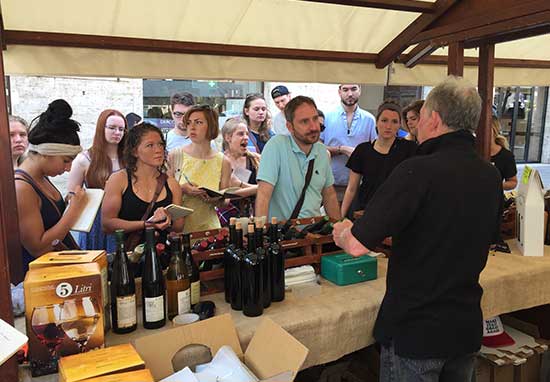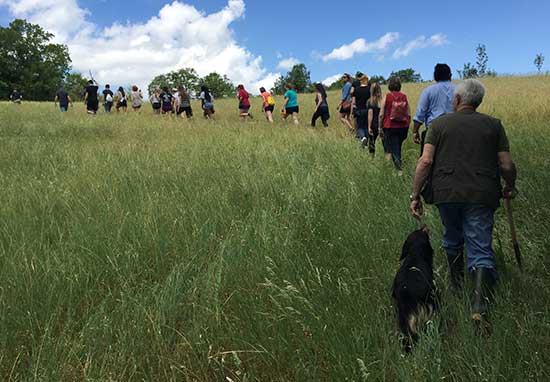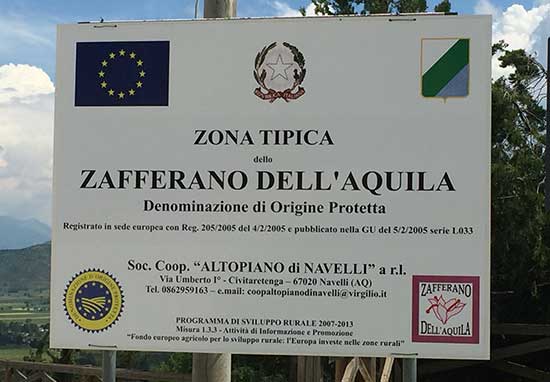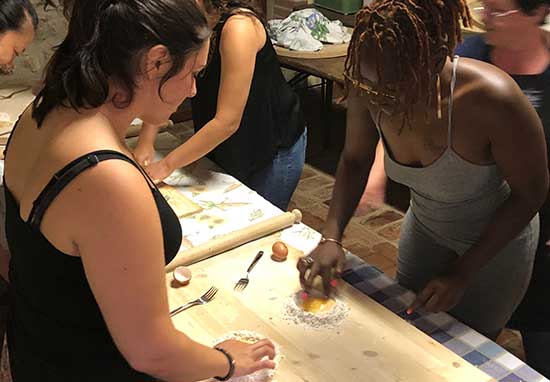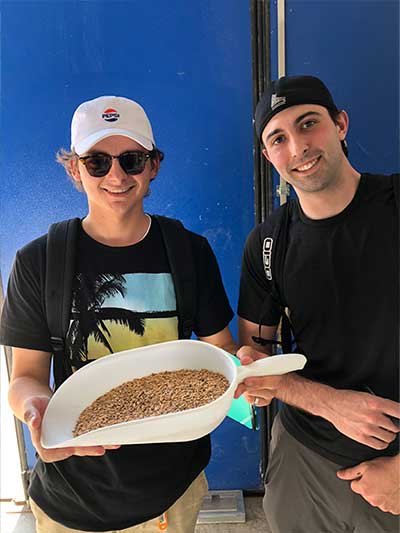Ethnographic Field School: Sustainable Food and Cultural Heritage
Sustainability—meeting the needs of the present while ensuring that future generations can also satisfy their needs—is key to much of my teaching and scholarship on cultural heritage management, tourism, foodways, and study abroad. I have spoken widely on these topics, including at the International Cultural Tourism Committee at ICOMOS, in which I presented research on the ways in which tourism and heritage can be mutually sustainable. As Director of the Museum of Anthropology and Archaeology at West Chester University, along with my student co-curators, I curated the exhibition, Earth Day at 50: Lessons for a Sustainable Future; and edited the catalog, published by Innovative Ink in 2023.
Based primarily on faculty-student research conducted every summer in Umbra, Italy in conjunction with my Ethnographic Field School on Sustainable Food and Cultural Heritage, I have been researching the discourses and practices among small-scale agricultural producers, as well as various consumer stakeholder groups, surrounding the heritagization of local, sustainable foodways. Today, throughout many places in the Global North, local, organic production—much of which can be considered Slow Food—has become marked in opposition to the increasingly dominant industrial food system. Yet in Italy, which boasts one of the largest industrial food complexes in the world, this form of sustainable agriculture is being increasingly promoted and talked about as part of Italian heritage. Indeed, many local and traditional foodways are on the UNESCO Intangible Heritage List—including the Mediterranean Diet, Neapolitan Pizza making, and Truffle Hunting—such that in 2024 the Italian government officially announced the candidacy of “Italian Cuisine: Sustainability and Biodiversity.”
The COVID-19 pandemic also forced many to re-think tourism and heritage development practices, and with Jaeyeon Choe, I studied the ways in which pilgrimage and wellness tourism could bounce back more sustainably. I also have spoken on research conducted during and after the pandemic on how agritourism was affected in Perugia, Italy.
In addition, I am a member of the WCU Climate and Archaeology Program (WCU-CAP), an interdisciplinary project led by archaeologist Heather Wholey and geomorphologist Daria Nikitina. The project has been modeling impacts of climate change—specifically sea level rise—on the Delaware Bay since 2017. The work has been funded by National Geographic, National Endowment for the Humanities, the PA State System of Higher Education, and the West Chester University Foundation, among others, and incorporates high-impact learning and individualized research studies for undergraduate and graduate students from several CSM departments including anthropology, biology, and geology. It examines the impact of climate change on cultural and natural heritage in and around the salt marshes of the Delaware Bay area (New Jersey and Delaware), which has strong environmental, economic, and social sustainability implications. In addition to advising on cultural heritage and tourism development, I specifically am focused on audience research—ascertaining the levels of understanding among locals, domestic and foreign tourists at these sites.
